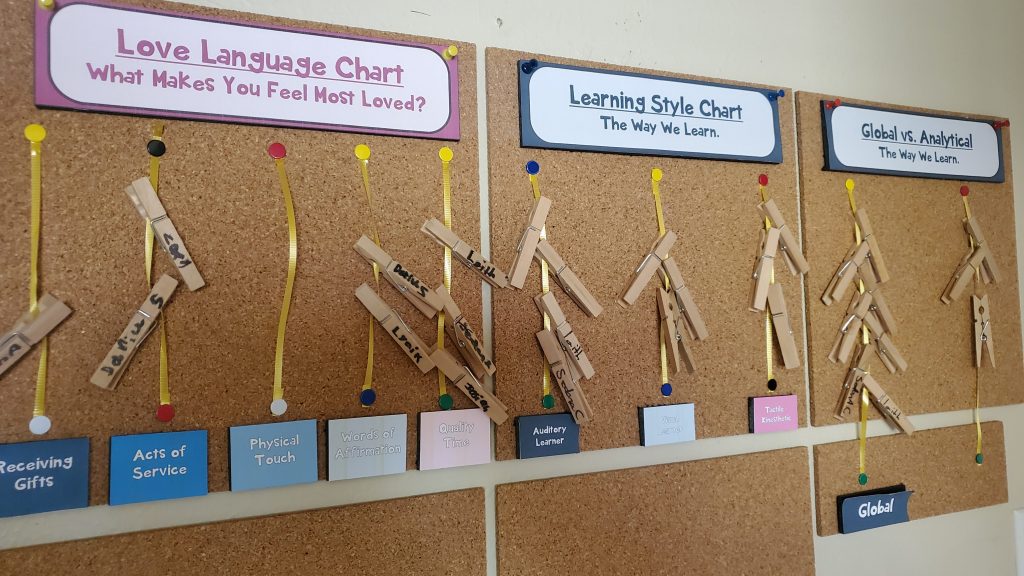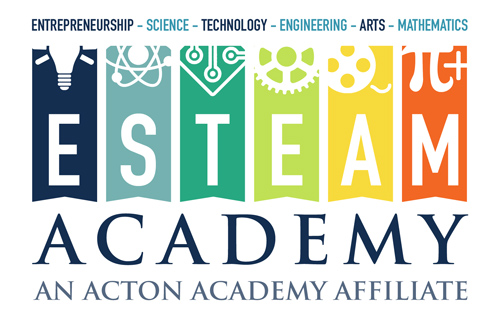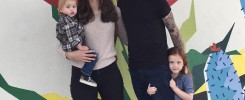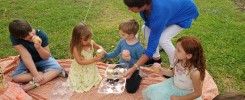While we haven’t officially started the school year, I’ve been continuing my personal journey with E.S.T.E.A.M. I’ve tried to jump into the culture by literally getting my hands dirty. Going to the school to help clean up and organize has allowed me to get to know some of the staff, parents, and students. I’ve found that connecting with people and seeing them interact with other children and each other is a nice way to personalize things and bring the theory into practice.
On the other hand, I’ve also had to wrestle with a mild crisis of faith. The first one came from reading Stephen Pinker’s “The Blank Slate.” It’s a pretty dense book about the current science behind the age-old nature vs nurture debate. While I’m sure I missed plenty of nuances, and this surely isn’t the place to discuss such things, my general takeaway is that nature plays a large part in who we are. Assuming his thesis is sound doesn’t it follow that a lot of what we’re trying to give our children at E.S.T.E.AM. will be done in vain? Yes, parental nurturing plays a role as does the peer environment, but is that really worth the cost of tuition? These thoughts made me remember “Selfish Reasons To Have More Kids” by Bryan Caplan which raises some of the same points and focuses directly on parenting.
The second alarm came while helping at the school. After completing my work for the day I decided to take a quick tour of the facility to remind myself of all the wonderful things my daughter would soon have access to. I walked around looking at drone kits, a huge LEGO room, tons of games and art supplies, i-pads, a whole room dedicated to music, and the library. I also saw one little chart on the wall that mentioned learning styles and love languages. There’s always a chance I may not be up to date on the latest research, but I am under the impression that both of these theories have been debunked. A quick google search shows that the ideas are highly questionable at a minimum.
Finally, earlier today I stumbled across an article questioning the validity of Carol Dweck’s Mindset research. Having been a big fan of the idea of the growth mindset this new information made me uncomfortable, but at the end of the day, we have to follow the science regardless of where it may lead. For now, I don’t think encouraging a child using a growth mindset language over a fixed mindset language can be harmful, but it may also not have the big effects we thought it did. I’m interested to see how the research continues to evolve on this one.
Despite these issues we are moving forward with E.S.T.E.A.M. Unlike a  traditional school, I can discuss these questions directly with the staff and parents. I believe that we are all dedicated, thoughtful parents who will have no problem adjusting school practices if that’s what we decide is best. A crisis of faith implies that we believe in and follow a program despite rationality and results. I believe that the E.S.T.E.A.M. model is flexible enough and devoid of ego to where we can easily learn from each other and shift course as we see fit. By working together as a small tribe of parents, heroes, and guides we certainly address new information and find the best path forward for everyone.
traditional school, I can discuss these questions directly with the staff and parents. I believe that we are all dedicated, thoughtful parents who will have no problem adjusting school practices if that’s what we decide is best. A crisis of faith implies that we believe in and follow a program despite rationality and results. I believe that the E.S.T.E.A.M. model is flexible enough and devoid of ego to where we can easily learn from each other and shift course as we see fit. By working together as a small tribe of parents, heroes, and guides we certainly address new information and find the best path forward for everyone.
About the Author: Daniel, father of 2, new Tribe members as of the 2020-2021 School Year.


